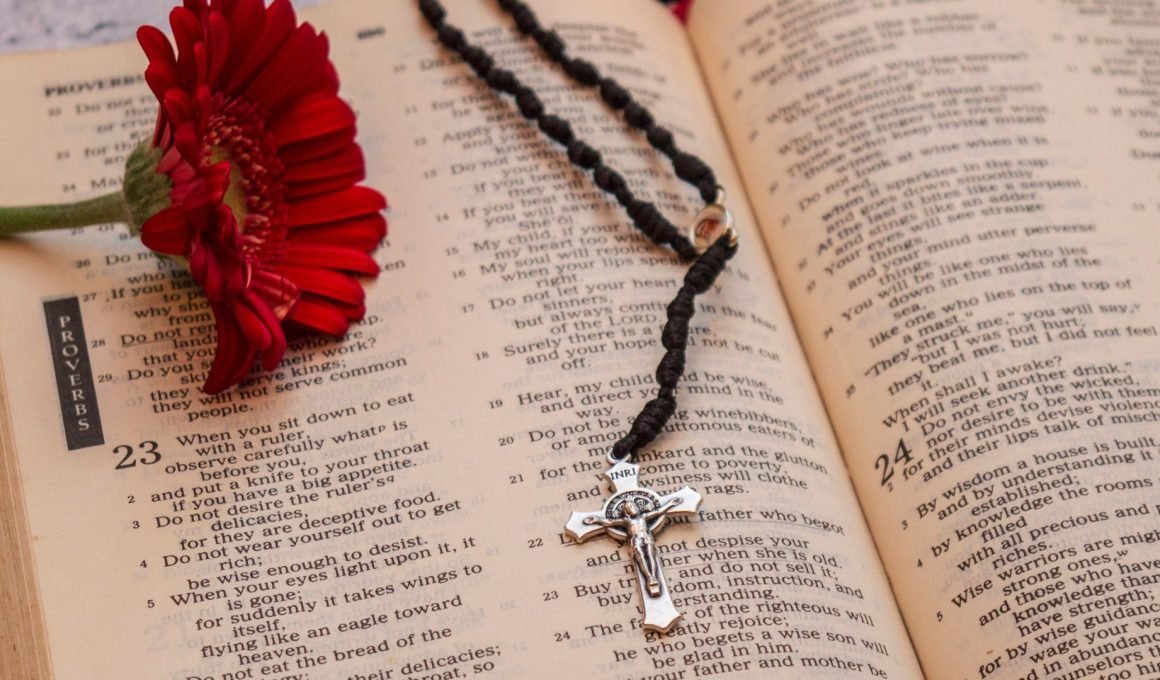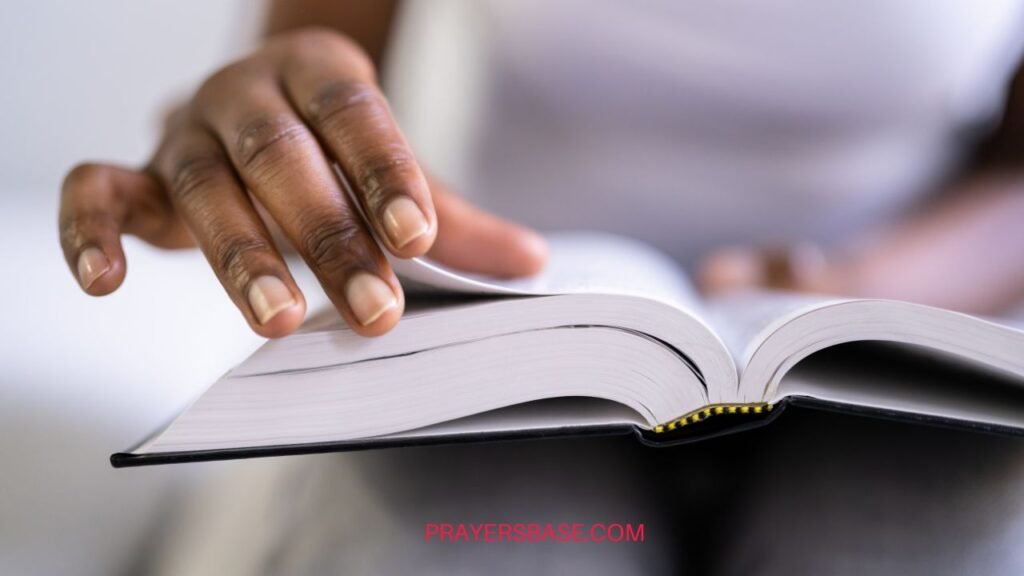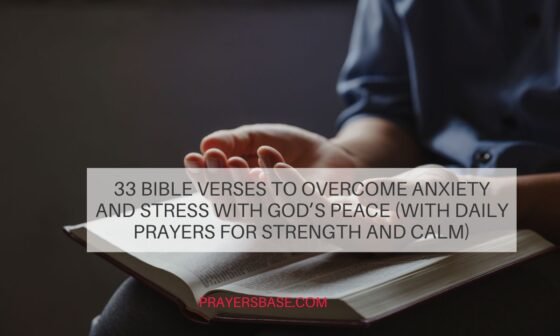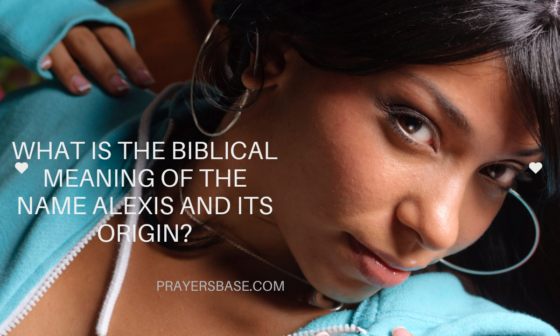The Bible is full of stories of heroes — kings, prophets, and warriors. But hidden within those pages are bold, wise, and faith-filled women whose names still echo with power today. These are not background characters.
These are mothers, leaders, servants, and warriors of God who stepped out in courage and shaped the course of history.
From queens like Esther to humble women like Ruth and Mary Magdalene, each name in this list reminds us that God has always used women in mighty ways — not just in support roles, but in divine callings that shifted nations, preserved generations, and carried the promise of salvation.
In this post, we’ll explore 13 powerful female names in the Bible, who they were, what they did, and what we can learn from their stories today.
Whether you’re looking for a meaningful baby name or simply want to be inspired by women of unshakable faith, this journey through Scripture will stir your heart and strengthen your spirit.
Female Names in the Bible
1. Eve: The Mother of All Living
Eve, the first woman, holds a place of paramount importance in the Bible. According to Genesis 2-3, she was created by God from Adam’s rib, signifying the intimate connection between man and woman.
Eve’s story is foundational, highlighting themes of creation, temptation, and the human condition. Her decision to eat the forbidden fruit and the subsequent expulsion from Eden set the stage for the rest of the biblical narrative.
Despite her transgression, Eve is honored as the mother of all living, and her story serves as a profound exploration of human free will and responsibility.
2. Sarah: Matriarch of Nations
Sarah, originally named Sarai, is one of the most significant female figures in the Old Testament. As the wife of Abraham and the mother of Isaac, she plays a crucial role in the Abrahamic covenant.
Her story, detailed in Genesis 17-18 and 21, is marked by a miraculous birth in her old age, fulfilling God’s promise to Abraham that he would be the father of many nations. Sarah’s faith and perseverance amid doubt and barrenness highlight themes of trust in divine promises and the importance of family and lineage.
3. Rebekah: A Mother’s Influence
Rebekah, the wife of Isaac and mother of Esau and Jacob, is a complex and influential character. Found in Genesis 24-27, her story includes elements of divine providence, as she is chosen for Isaac by Abraham’s servant through a sign from God.
Rebekah’s favoritism towards her younger son, Jacob, and her role in securing his blessing over Esau demonstrate the powerful influence of maternal figures in biblical narratives. Her actions, though controversial, underscore the themes of destiny and God’s overarching plan.
4. Leah and Rachel: Sisters in Rivalry
Leah and Rachel, the two wives of Jacob, provide a poignant narrative of love, rivalry, and God’s blessings. Leah, often perceived as the less-loved wife, bore six of Jacob’s twelve sons, who became the patriarchs of the tribes of Israel (Genesis 29-30).
Rachel, whom Jacob loved deeply, faced initial barrenness but eventually gave birth to Joseph and Benjamin. Their stories reflect the complexities of familial relationships and the fulfillment of God’s promises through unexpected means.
5. Miriam: Prophetess and Leader
Miriam, the sister of Moses and Aaron, is a significant female leader in the Bible. Her story spans Exodus 15 and Numbers 12, where she is depicted as a prophetess and a key figure during the Israelites’ exodus from Egypt.
Miriam’s leadership, musical talent, and boldness are celebrated, particularly in her song of triumph after the crossing of the Red Sea. Despite her later challenge to Moses’ authority, Miriam’s contributions to Israel’s journey to the Promised Land are invaluable.
6. Deborah: Judge and Prophetess
Deborah stands out as one of the few female judges in the Bible, leading Israel during a time of oppression (Judges 4-5). Her story is one of courage, wisdom, and faith.
As both a judge and prophetess, Deborah provided guidance and leadership, orchestrating a military victory over the Canaanites with the help of Barak.
Her song of victory, recorded in Judges 5, is one of the oldest pieces of Hebrew poetry. Deborah’s story highlights the potential for women to lead and inspire, even in patriarchal societies.
7. Ruth: Loyalty and Redemption
The story of Ruth, a Moabite woman, is a beautiful narrative of loyalty, love, and redemption found in the Book of Ruth. After the death of her husband, Ruth’s devotion to her mother-in-law, Naomi, leads her to Bethlehem, where she eventually marries Boaz.
Ruth’s inclusion in the genealogy of Jesus Christ, as the great-grandmother of King David, underscores the theme of God’s inclusive love and the significance of faithfulness. Her story is celebrated for its depiction of steadfast loyalty and divine providence.
8. Hannah: A Mother’s Prayer
Hannah, the mother of Samuel, is a model of piety and prayerfulness in the Bible. Found in 1 Samuel 1-2, her story revolves around her deep desire for a child and her vow to dedicate him to God’s service.
Hannah’s fervent prayer at the temple and the subsequent fulfillment of her vow, when Samuel is born, highlights themes of faith, sacrifice, and divine blessing. Her song of thanksgiving, often compared to Mary’s Magnificat, is a profound expression of gratitude and devotion.
9. Esther: Courageous Queen
The story of Esther, detailed in the Book of Esther, is a compelling narrative of bravery, wisdom, and divine intervention. As a Jewish queen in Persia, Esther’s courage to approach King Ahasuerus and reveal Haman’s plot to annihilate her people leads to the salvation of the Jewish community.
Her story is celebrated during the Jewish festival of Purim and emphasizes the themes of courage, identity, and God’s protection over His people.
10. Mary: Mother of Jesus
Mary, the mother of Jesus, holds a central place in Christian tradition. Her story is found in the Gospels, particularly in Luke 1-2 and Matthew 1-2.
Chosen by God to bear the Messiah, Mary’s acceptance of this divine role with humility and faith is encapsulated in her song, the Magnificat. Throughout Jesus’ life, from his birth to his crucifixion and resurrection, Mary is a steadfast presence. Her role underscores themes of faith, obedience, and maternal love, and she is venerated as a model of devotion and purity.
11. Elizabeth: A Joyful Expectation
Elizabeth, the mother of John the Baptist, is another significant figure in the New Testament. Her story is recounted in Luke 1, where her miraculous old-age pregnancy parallels that of Sarah.
Elizabeth’s joy and faith, particularly during her meeting with Mary, the mother of Jesus, highlight themes of divine promise and fulfillment. Her recognition of Jesus as the Lord even before his birth underscores the interconnectedness of God’s plan.
12. Martha: The Hospitable Disciple
Martha, known for her hospitality and service, is a prominent figure in the Gospels (Luke 10, John 11-12). As the sister of Mary and Lazarus, Martha’s interactions with Jesus provide insights into the balance between service and devotion.
Her confession of faith in Jesus as the Christ during the raising of Lazarus is a profound moment in the Gospel of John. Martha’s story emphasizes the importance of trust, service, and a personal relationship with Jesus.
13. Mary Magdalene: Witness to the Resurrection
Mary Magdalene is one of the most well-known female figures in the New Testament. Mentioned in all four Gospels, she is a devoted follower of Jesus, healed by him from seven demons.
Mary Magdalene is present at the crucifixion and is the first to witness and announce the resurrection of Jesus (John 20, Mark 16). Her role as a witness to the resurrection has earned her a place of honor in the Christian tradition, symbolizing redemption, devotion, and the transformative power of encountering Christ.
14. Priscilla: Early Christian Teacher
Priscilla, along with her husband Aquila, is a notable early Christian missionary and teacher. As mentioned in Acts 18 and Romans 16:3, Priscilla is known for her hospitality, her role in mentoring Apollos, and her significant contributions to the early church.
Her partnership with Aquila in ministry highlights the collaborative nature of early Christian work and underscores the important role women played in the spread of the Gospel.
15, Lydia: A Businesswoman’s Faith
Lydia, a dealer in purple cloth, is the first European convert to Christianity, as recounted in Acts 16. Her story, though brief, is significant. As a successful businesswoman, Lydia’s conversion and subsequent hospitality towards Paul and his companions demonstrate the spread of Christianity across different social and economic backgrounds.
Her faith and generosity are celebrated as exemplary qualities of a Christian disciple.
Other Notable Female Figures
Hagar: The Egyptian Maidservant
Hagar, the Egyptian maidservant of Sarah, is a figure of endurance and divine encounter. After being mistreated by Sarah, Hagar encounters God in the wilderness, who promises her that her son Ishmael will become a great nation (Genesis 16, 21). Hagar’s story highlights themes of suffering, divine care, and the significance of God’s promises beyond the chosen line of Isaac.
Tamar: A Bold Pursuit of Justice
Tamar, the daughter-in-law of Judah, is a figure of resilience and determination. After being widowed and denied justice, Tamar disguises herself and ensures the continuation of her deceased husband’s line by bearing Judah’s children (Genesis 38). Her story underscores the importance of justice and the lengths to which individuals will go to secure it.
Rahab: The Faithful Prostitute
Rahab, a prostitute in Jericho, plays a crucial role in the Israelite conquest of the city. By hiding the Israelite spies, she secures the safety of herself and her family (Joshua 2, 6). Rahab’s inclusion in the genealogy of Jesus (Matthew 1) highlights God’s grace and the transformative power of faith.
Bathsheba: From Scandal to Queen Mother
Bathsheba, initially known for her illicit affair with King David, becomes the mother of Solomon and an influential queen mother (2 Samuel 11-12, 1 Kings
1-2). Her story is one of transformation and redemption, as she moves from a position of vulnerability to one of significant power and influence.
Abigail: A Woman of Wisdom and Courage
Abigail, the wife of Nabal and later of David, is noted for her wisdom and bravery. By intervening and providing provisions to David, she averts bloodshed and earns David’s respect (1 Samuel 25). Abigail’s story highlights the power of wise and courageous actions in times of crisis.
Jael: The Unexpected Heroine
Jael, a non-Israelite woman, becomes a heroine by killing Sisera, the commander of the Canaanite army, and thereby securing a victory for Israel (Judges 4-5). Her act of bravery is celebrated in Deborah’s song and underscores the unexpected ways in which deliverance can come.
Theological and Cultural Impact
The stories of these women are more than historical accounts; they carry deep theological and cultural significance. Each woman’s narrative offers insights into God’s character, His plans for humanity, and the roles individuals play in His unfolding story. These stories also challenge cultural norms and expectations, demonstrating that women, despite societal constraints, can exercise significant influence and leadership.
In Christian theology, many of these women are seen as foreshadows or types of Mary, the mother of Jesus, whose faith and obedience made possible the Incarnation. This typological reading enriches the understanding of women’s roles in salvation history.
Culturally, the stories of biblical women have inspired countless works of art, literature, and music. They serve as symbols of faith, courage, and resilience, offering models for women throughout the ages.
Modern Reflections and Applications
The stories of female names in the Bible continue to resonate in contemporary times. They provide valuable lessons on faith, perseverance, and the importance of trusting in God’s promises. For modern readers, these narratives can offer encouragement and inspiration in various life situations.
Faith and Trust in God
Many of these women exemplify profound faith and trust in God, even in difficult circumstances. Their stories encourage believers to rely on God’s promises and remain steadfast in their faith.
Courage and Leadership
Figures like Deborah, Esther, and Mary Magdalene demonstrate that women can be courageous leaders and agents of change. Their examples inspire modern women to take on leadership roles and advocate for justice and righteousness.
The Power of Prayer
Hannah’s story, in particular, highlights the power of prayer and the importance of seeking God’s guidance and blessing. Her example encourages believers to turn to God in times of need and to trust in His timing and provision.
Redemption and Transformation
The stories of Rahab, Mary Magdalene, and Bathsheba show that no one is beyond God’s redeeming grace. Their transformations offer hope that God can bring about change and renewal in anyone’s life.
Conclusion
The female names in the Bible represent a rich tapestry of faith, courage, and divine interaction. From Eve, the mother of all living, to Mary Magdalene, the first witness of the resurrection, these women have shaped biblical history and continue to inspire faith communities around the world.
Their stories are timeless, offering profound insights into human nature, the character of God, and the power of faith and obedience. As we reflect on these narratives, we find not only historical significance but also timeless truths that continue to speak to our lives today.








